In Windows 10, you can shrink a partition on your drive. This can be useful if you have extra space on your drive which you would like to use for installing another OS in a dual-boot configuration. Or you might want to split one big partition into a couple of smaller partitions. Later, you might want to read the shrink log to perform some analysis, troubleshoot any issues experienced while doing the operation or recall the process in your memory. For this task, you can use the built-in Event Viewer app.
Advertisеment
When you shrink a partition in Windows 10, the operating system saves the results to a special journal readable by Event Viewer. This log comes with extra details which can explain why the procedure failed, what the new sizes of your partitions are and so on.
To find the partition shrink log in Windows 10, do the following.
- Press the Win + X keys together or right-click the Start button and select Event Viewer in the context menu.
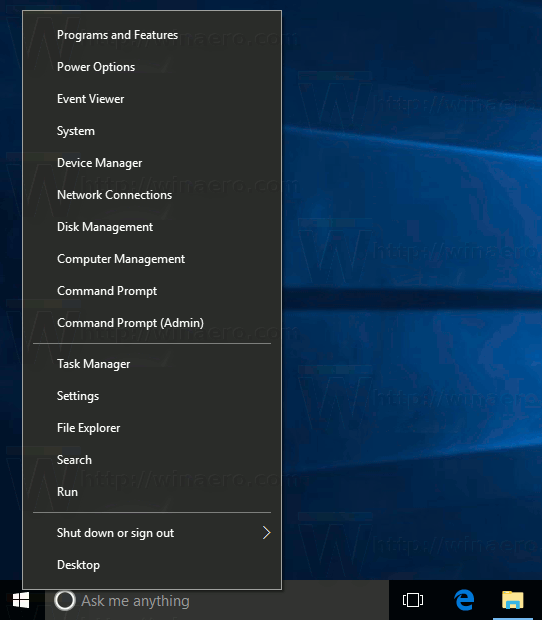
- In Event Viewer, go to Windows Logs \ Application.
- On the right, click on the link Filter Current Log....
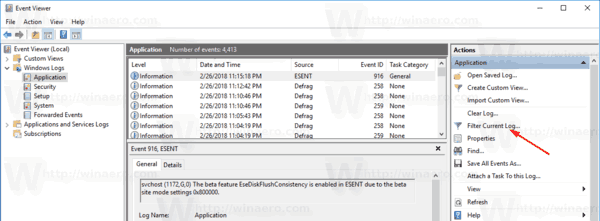
- In the next dialog, type 258,259 in the "Includes/Exlcudes IDs" text box.
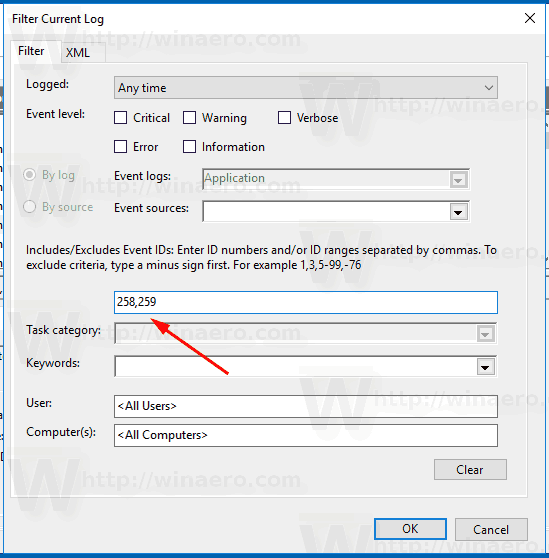
The Event Viewer app will now show only events related to partition shrinking operations.
The source of these operations is the "Defrag" app.
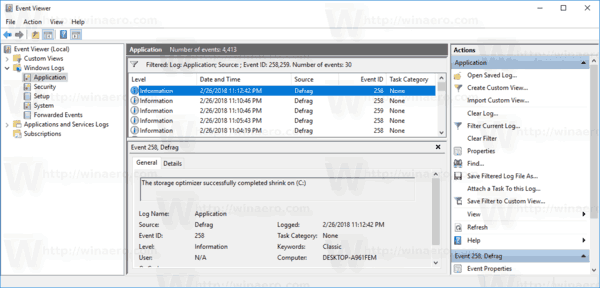
You can click on a row to see the operation details, date, time, and the result.
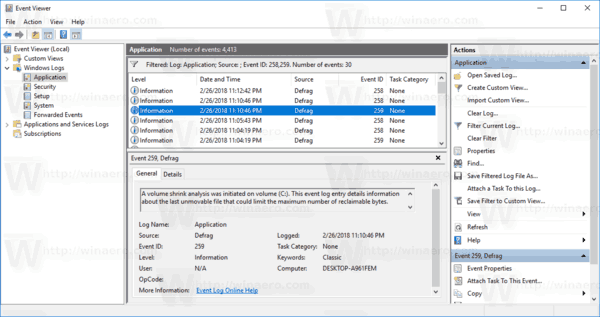
Modern Windows versions like Windows Vista, Windows 7, Windows 8.1 and Windows 10 allow shrinking partitions with free space in order to reduce their size and use the free space for creating another partition or installing a different operating system.
Many users prefer to create multiple partitions on their drive to avoid storing all data on the system partition with Windows installed. Traditionally, the system drive is your C: drive. If it is large enough, you can shrink it and have partitions D:, E: and so on.
If you need to shrink a partition, refer to the following article:
How to Shrink a Partition in Windows 10
That's it.
Support us
Winaero greatly relies on your support. You can help the site keep bringing you interesting and useful content and software by using these options:
